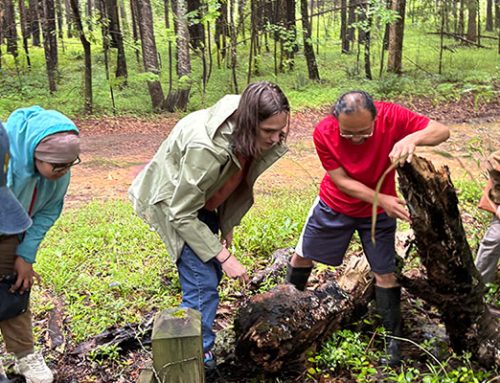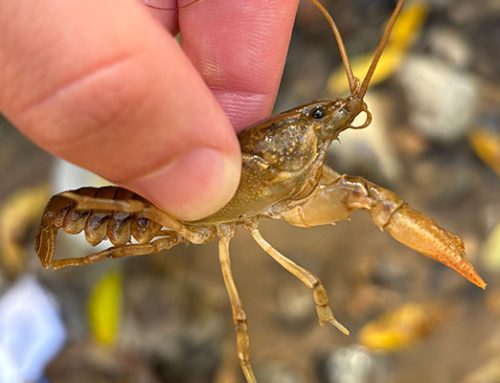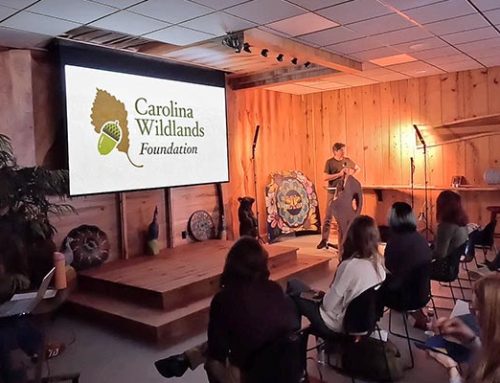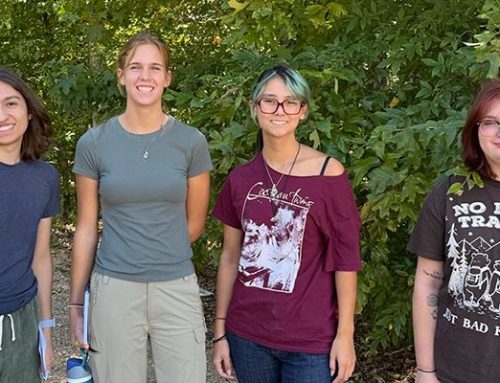A Visit from the Savannah River Environmental Sciences Field Station

This year for Summer Solstice and Juneteenth (June 19 – 21) the staff at Carolina Wildlands Foundation were thrilled to host students and faculty from the Savannah River Environmental Sciences Field Station (SRESFS), based at SC State University in Orangeburg. For the second year in a row, under the sound leadership of Dr. Joniqua Howard and her team, students participating in this experiential learning program joined us for an overnight field experience designed to meet their core mission: to increase recruitment and retention of underrepresented students and women in the science, engineering, natural resources management, and environmental career professions.
These 12 students were carefully selected from a wide range of Historically Black Colleges and Universities (HBCU’s) and related institutions, many from the Southeast, and some from as far west as Hawaii and southern California, and as far east as Puerto Rico. After a full day of coastal science exploration at the Hobcaw Barony Baruch Center in Georgetown SC, they showed up at Southern 8ths ready to fulfill the second part of the SRESFS mission: to provide hands-on, field-oriented experiences for students enrolled at all of the field station member institutions.
The whole time, these students were enacting a natural disaster simulation called “3 Days and 2 Nights in the Dark” to adapt to life after a major hurricane with all technological systems down. They analyzed water samples to determine potability, set up solar chargers for batteries, and were even “rescued” by superstar sky diver Mike Elliot who jumped out of a plane overhead to drop in for a visit by parachute.
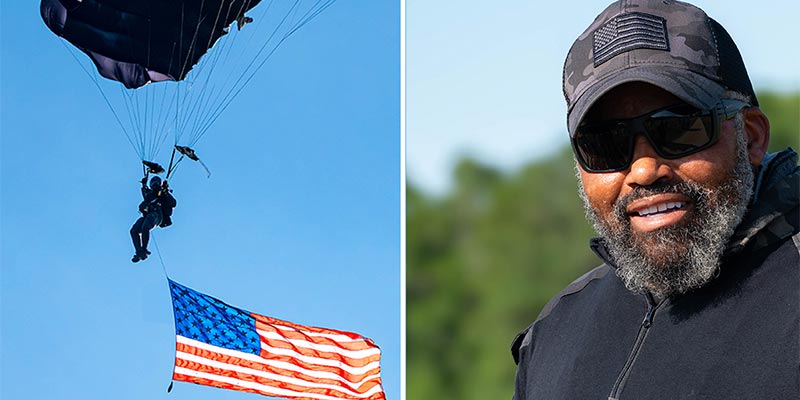
The students got to experience Southern 8ths in all of its summer glory, in pursuit of the third part of the SRESFS mission: to increase science literacy and public education on complex environmental issues. They sampled aquatic insects in Thompson Creek with the “stream team” from the SC Department of Environmental Services, learned about climate adaptation from the SC Office of Resiliency, and after dark they participated in a moth study hosted by the field biologists from the University of South Carolina. On top of all that, they kept nature journals and enjoyed s’mores around the campfire.
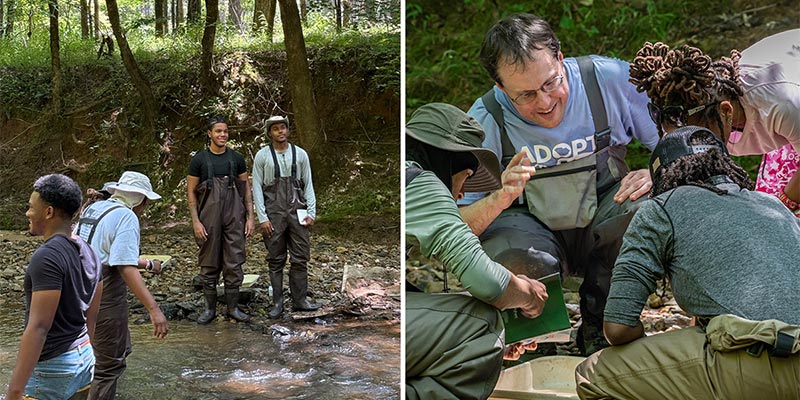
Hosting the SRESFS students is what Carolina Wildlands is all about – building connections with each other, with the natural world that is our home, and working together to keep our planet and our communities healthy and thriving.

